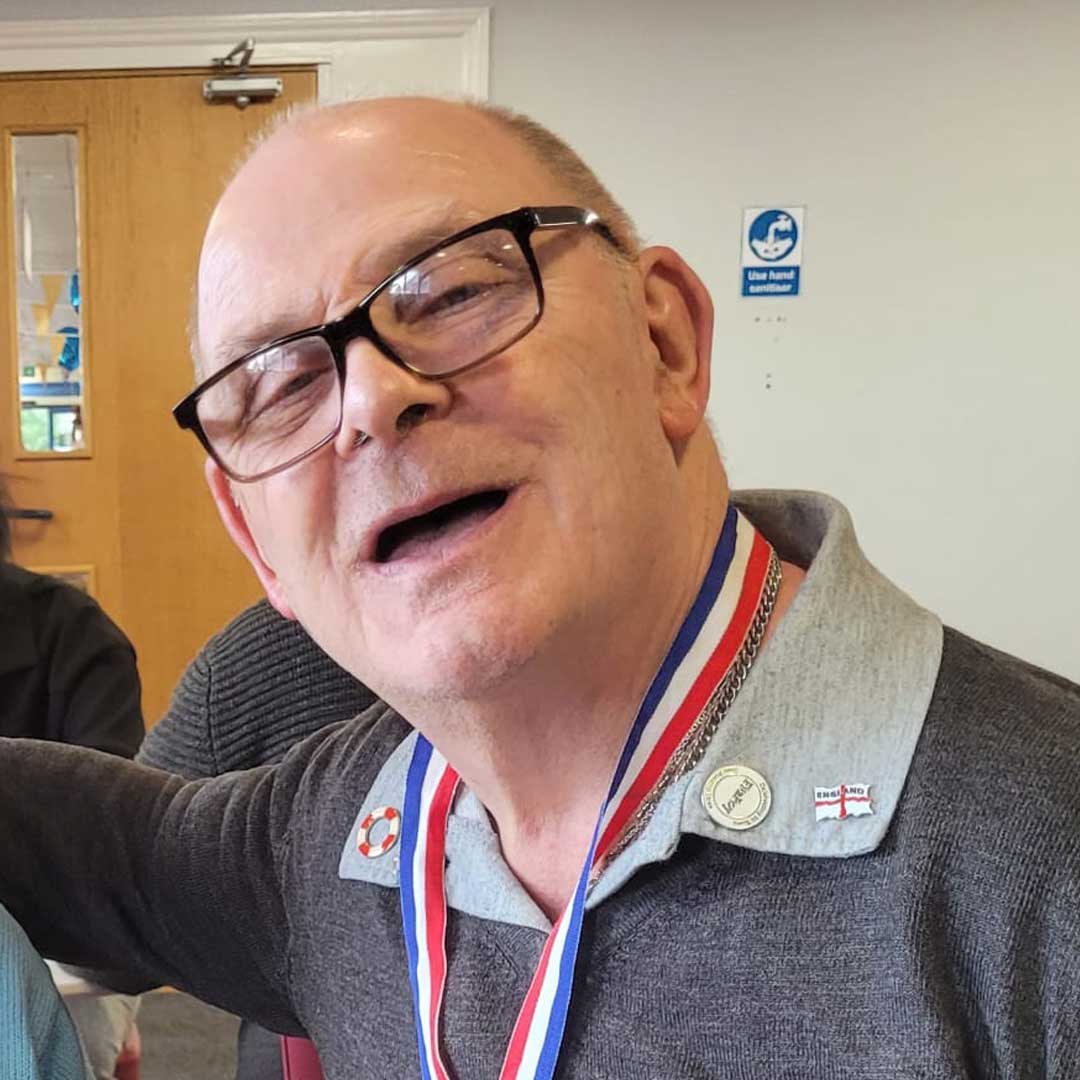
How a new approach to supporting Owen transformed his quality of life
Owen moved into one of our supported living services in Norfolk two years ago when the care home he had been living in closed. He had a very close friendship with his friend Jeanie, so we were delighted that they were both able to move into our supported living service. Even though he was still living with Jeanie, Owen still found the move very difficult. Having gone from a very structured routine, where he was extremely dependent on his friend Jeanie and would hardly ever do anything without her, Owen found it very difficult to suddenly be in a FitzRoy environment where he had far more choice.
Owen’s struggle to cope with the change meant he had very high levels of anxiety as well as outbursts of extreme anger. The staff were doing their best to support him and help him cope, but were feeling overwhelmed themselves.
Thankfully our Positive Behaviour Support (PBS) team were on hand to support and advise. Together with the dedication and determination the support staff, Owen’s quality of life has been completely transformed.
Service manager Gill said: “We’re all delighted that our approach to Owen’s care has made such an enormous difference, especially as it would have been extremely difficult to find somewhere else suitable for him if this placement hadn’t worked out.
“We received very little information about Owen and what worked for him when he arrived here, so we were all a bit taken aback when he found the transition to supported living such a struggle. Our ethos is to make sure we offer all the people we support choice and enable them to have their say in how their lives run, but, as we’ve found out, that approach really doesn’t work for Owen. He needs to have confidence in what is going to happen in his day – it was the not knowing that he really struggled with.
“Presenting information slightly differently really helps him too – he comes across as very capable, which can make it easy to underestimate the impact of his learning disability and not stop and think about how best to present information for him. Now we know that, we can support him much more effectively at medical appointments as well as in his daily life.”
The PBS team helped to create a bespoke plan for Owen which has seen some very simple changes, such as mapping out on a board what his day will look like, reduce his anxiety hugely. This reduction in anxiety and stress has also helped improve his physical health – before, he would experience seizures that would last 25 minutes or more but now the frequency of seizures has really reduced, and they last around 3.5 minutes.
PBS team member Will said: “It really is all credit to the staff at the service how they’ve taken it all on board and been so dedicated to coming up with a plan that worked for Owen. A key part of a positive support plan is really understanding who a person is, what makes them tick, and why they might react to things the way they do. Once I helped the staff to put themselves in Owen’s shoes and understand what his experiences will have been like so far, it really changed the way some of his reactions were viewed. Owen is quite verbal, so, as Gill says, it can be easy to think he’s understood much more than he has. Creating visual schedules for him actually helps both parties – Owen knows exactly what his day will look like and the staff can have confidence that he’s really understood it. A positive support plan might look simple, but now the team have faith that it works – and very effectively too! – it’s just a case of maintaining it.”
Deputy manager Kim, who took the lead on creating Owen’s visual schedule, added: “It’s incredible how much more Owen is interacting with the world around him – he’s only just started to call his fellow residents by name and he’s now laughing and joking with staff, in a way that would have been unheard of when he first moved in. Previously, he was utterly focused on his friend Jeanie and very dependent on her, but now he’ll ask staff for help with things. He joins in with lots of different activities too, which he just wouldn’t have done at all before. It was great to see him getting stuck in with the Halloween fun recently and he’s also helped to make a trifle for all the residents, which was brilliant.
“The training in a positive behavioural support approach has also transformed the team’s confidence – now we know we’re supporting him in the way that’s best for him and can be confident that we’re doing the right thing. We don’t always get it right – for instance, his board got knocked over the other day, but we made a joke of it and he was just laughing at us. I think now he knows he can trust that we mean what we say and that what’s on the board is what will happen, so even when things go wrong he’s much less anxious and can cope far more easily.”
Gill says:
The incredible success of this new approach following the help and support of the PBS team has made such a difference to team morale. The Learning Disability nurse came in recently and was astounded at the difference in feedback from the staff – she was so overwhelmed, in a good way, that there were almost tears! We’ve also had really positive feedback from our local authority, including a thank you card which was lovely.
